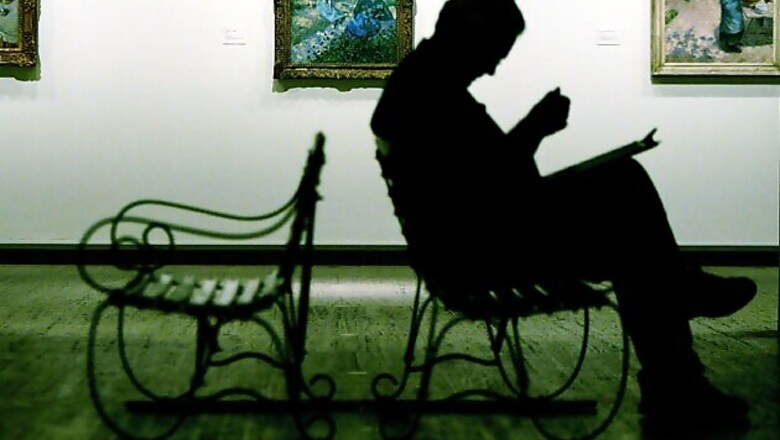
views
New Delhi: For 35-year-old Ritika (name changed), everything seemed a burden. She suddenly started losing interest in both work and people around her. Even ordinary tasks seemed Herculean to her. A call centre employee, she no longer paid attention even to her personal life. "I did not feel like getting up in the morning, I had to push myself to office, and I was a chronic late-comer. If I was given even a little extra work, I would become sad. I even lost interest in going out with friends or family," recounts Ritika.
A friend suggested that she visit a psychiatrist. Only then did Ritika realise that she suffered the symptoms of depression. "Until then, I had not realised it was depression. I did not know the seriousness of the condition until I met the doctor. I was told chronic depression can drive people to suicide. Thank god, I went to a doctor just in time," she says.
With stress becoming an inescapable fact of modern day existence, doctors say depression and other mental problems are becoming common. Sadly, there is not enough awareness of the nature of mental illnesses, and few people seek medical help for them. The situation is worse compounded by the fact that mental illness comes with huge social stigma. "I did not tell anyone I was under treatment for my condition. Initially, I wondered if I was mad or something. But I realise now that it is better to get counselling than to spiral downwards with illness," Ritika says, acknowledging that the treatment made a huge difference to her life.
"Mental illness is much like physical illness. It is treatable. Early intervention leads to better outcomes and can prevent people from reaching a crisis point. It is also important that society not stigmatize those suffering from such illnesses," says Sudhir Joseph, Director, St. Stephen's Hospital.
Psychiatric illness and drug abuse are leading contributors to early death across the globe, says a recent WHO report. In India, the prevalence of major mental and behavioural disorders is estimated to be 65 per 1,000 population. Given the size of India's population, and going by this estimate, at least 70 million people in India suffer mental illnesses.
A 2010 report of the National Crime Record Bureau (NCRB) says that as many as 9,465 people committed suicide in India due to mental illness, in one year. "Depression, anxiety, obsessive compulsive disorder (OCD), lack of self-esteem, hallucination, schizophrenia, disorientation - these are no longer taboo words in western societies. There is now greater openness about mental illnesses in western societies, and there is easier access to quality frontline medical care in many western countries. Family support and rehabilitation centres for the severely addicted, depressed or ill has been made available," says Joseph, who is associated with the Delhi Mental Health Helpline (1860 266 2345).
According to Joseph, in India families fail to report mental illness because there is a terrible social stigma attached to it. The matter is thus kept under wraps. "A psychologist or a psychiatrist can help people cope with stress and strain through counselling and medication, if required," he says.
The mental health helpline was launched by Delhi Chief Minister Sheila Dikshit in October last year. The work of the helpline is conducted by the Emmanuel Hospital Association (EHA), St. Stephen's Hospital, Vandrevala Foundation and the Mar Thoma Church, working in collaboration.
Ashok Chacko, regional director of the helpline, says more than 60 percent of people suffering from mental illness do not seek help. "We have received calls ranging from stress, domestic violence, fears, adolescent problems, dejection and marital problems," says Chacko. "More than 60 per cent of people suffering from mental illness do not seek help because of a complex set of reasons, especially the fear of stigma and poor access to professional mental health advice."
Chacko adds that the problem is compounded by the fear that patients and families have of what others will think. Joseph says that many of those suffering such problems require only a counseling session. They only need a little insight and guidance to help them. There are also cases that require intensive or prolonged therapy, and those that can only be treated by a psychiatrist, he says.




















Comments
0 comment